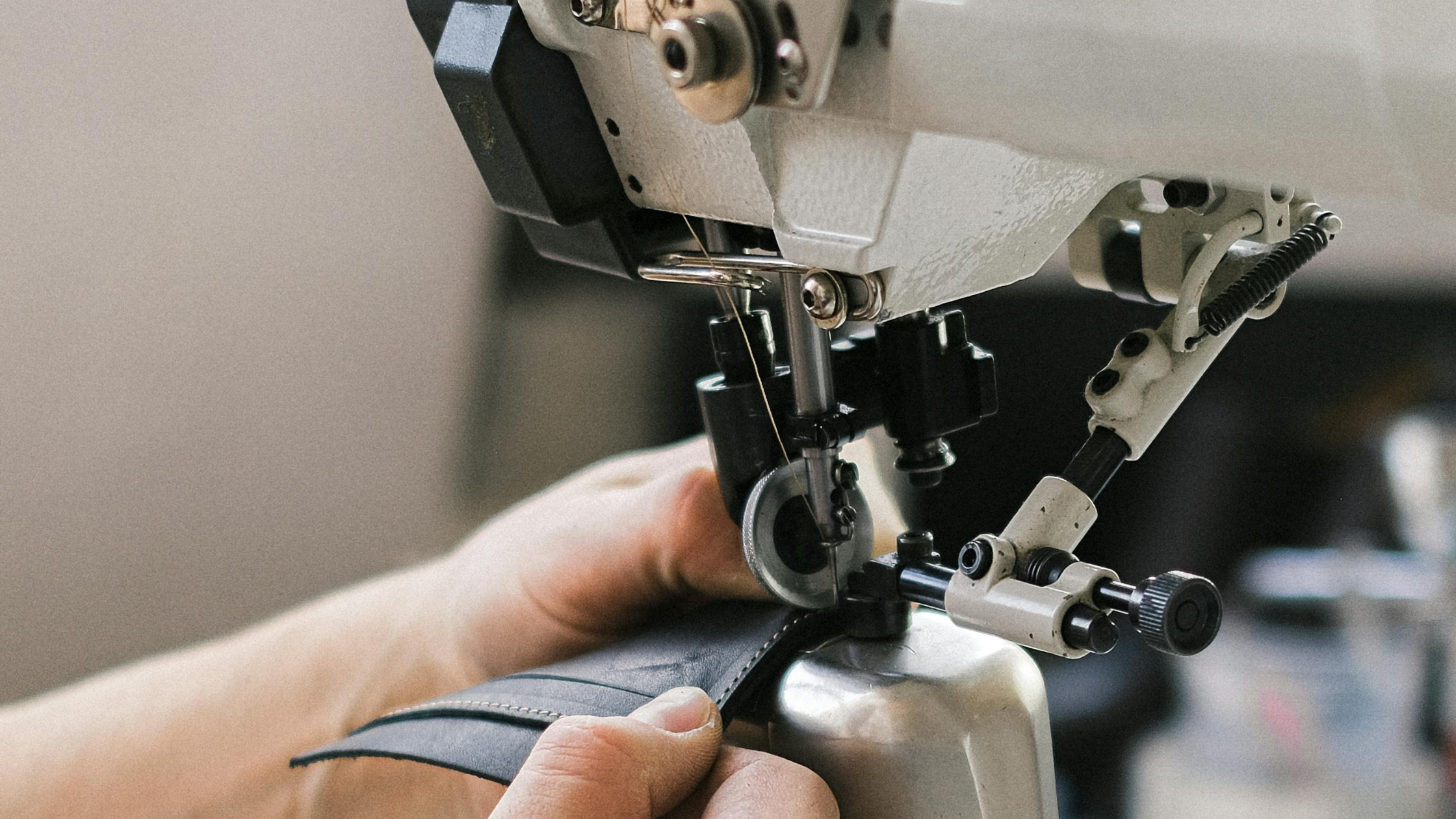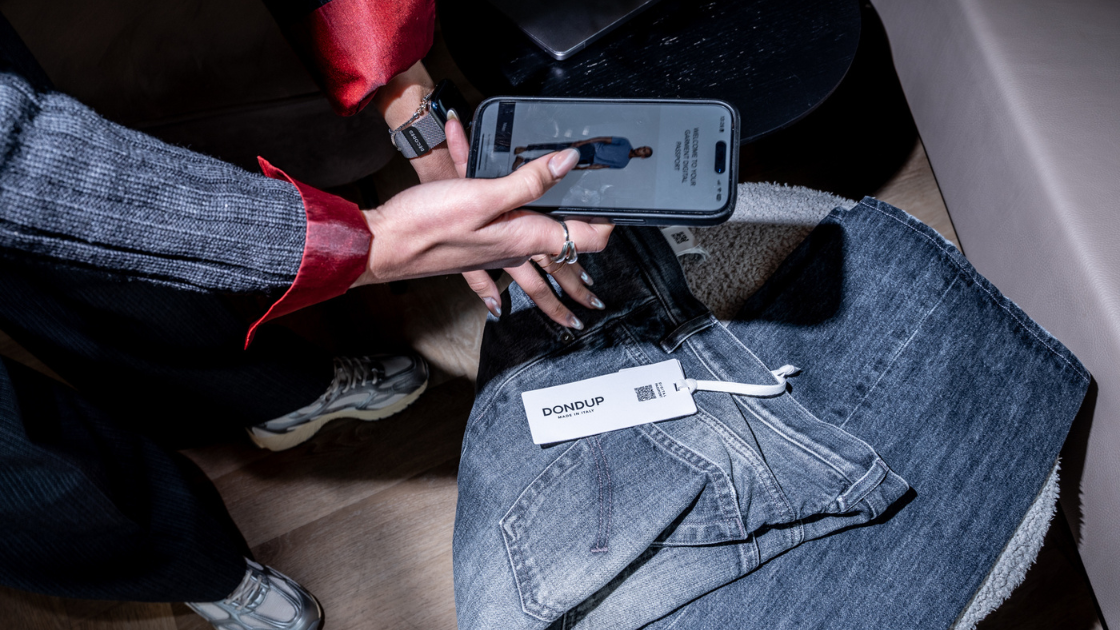As the fashion industry grapples with increasing pressure to reduce its environmental impact, sustainability regulations are becoming more than just an ethical imperative—they are now a legal requirement. Small fashion brands, in particular, are feeling the urgency to align with new sustainability standards to remain competitive and compliant. But when exactly should small fashion brands start preparing for sustainability regulations, and how can they navigate the complexities of compliance?
In this blog post, we will explore the regulations impacting small fashion brands, the critical timelines for compliance, and how adopting transparency and traceability tools, such as digital product passports, can help brands stay ahead of the curve. We'll also highlight examples of small brands leading the charge by implementing solutions before these regulations become law.
Understanding Sustainability Regulations in Fashion
Sustainability regulations in the fashion industry refer to laws and directives that require businesses to minimize their environmental impact and improve supply chain transparency. These regulations are primarily aimed at reducing carbon footprints, waste, and unethical practices in sourcing, manufacturing, and disposal. For small brands, this often involves tracking the lifecycle of products, ensuring ethical production processes, and reporting sustainability data.
The European Union (EU) has been at the forefront of introducing sustainability regulations, with rules like the EU traceability regulations and EU Digital Product Passport that aim to ensure fashion companies maintain transparency from raw material sourcing to end-of-life recycling.
As sustainability continues to be a focal point for legislation, small fashion brands must understand how these regulations apply to their businesses and take proactive measures to stay compliant. Let’s break down the regulations most relevant to small fashion brands today.
Which Regulations Will Impact Small Fashion Brands?
1. EU Traceability Regulations
One of the key regulations influencing small fashion brands is the EU traceability policy, which mandates that brands track and disclose information about the origins of their products. This includes sourcing materials, labor practices, and environmental impact throughout the supply chain.
Under these regulations, brands must implement processes to collect data and present it in a manner that is easily accessible to both consumers and regulatory bodies. Supply chain transparency and traceability are no longer optional—they are fundamental to maintaining compliance with EU laws.
By integrating traceability software, such as Renoon’s solution, small fashion brands can effectively monitor and document the entire supply chain lifecycle. From material sourcing to manufacturing and distribution, a digital supply chain mapping tool ensures that all stages are traceable, providing vital data for sustainability reporting.
2. Digital Product Passport
Another significant regulation affecting small brands is the introduction of the Digital Product Passport (DPP). This regulation requires fashion brands to provide comprehensive product information, including material composition, environmental impact, and recyclability, through a digital platform. A digital product passport makes it easier for consumers to access crucial information about the products they purchase, fostering greater accountability and trust.
Starting in 2027, the EU Digital Product Passport regulation will require all apparel brands to implement this tool. Small fashion brands that adopt digital product passports ahead of time will not only ensure compliance but also gain a competitive edge by offering their customers greater transparency about the products they buy.
By integrating QR codes and other digital identifiers into products, small brands can ensure that each item has a verifiable and accessible digital passport. This proactive approach not only keeps brands compliant but also enhances customer engagement through immersive storytelling about the impact of the items.
3. Compliance and Reporting
The EU’s sustainability reporting standards and other legislation require brands to regularly report on their environmental impact, including carbon emissions, resource use, and waste management. Small brands must demonstrate their efforts to meet sustainability goals and be transparent about how they manage their operations.
Sustainability management tools, including life cycle assessments (LCA), will play a crucial role in helping small fashion brands align with these standards. An LCA evaluates the environmental impact of a product from raw material extraction to disposal, offering valuable insights into areas where brands can reduce their carbon footprint.
4. Fast Fashion and Greenwashing Regulations
The European Union has also set its sights on tackling greenwashing within the fashion industry. As consumers demand more sustainable products, some brands have been accused of misleading claims about their sustainability efforts. To combat this, the EU has introduced regulations that aim to ensure that sustainability claims are accurate and substantiated.
For small brands, this means that they must be prepared to back up their sustainability claims with data and demonstrate their commitment to ethical and sustainable practices. Using tools like automated compliance software can help small brands ensure they are accurately tracking and reporting their sustainability efforts, avoiding the pitfalls of greenwashing.
Timelines for Compliance
It’s essential for small fashion brands to understand the key compliance deadlines for these regulations. Waiting until the last minute to comply could result in fines, delays, or loss of consumer trust. Let’s break down the major timelines for sustainability regulations:
- EU Traceability Regulations: These regulations will be enforced gradually, with full compliance required by 2030. However, brands are encouraged to begin implementing traceability and supply chain transparency measures now.
- Digital Product Passport (DPP): The EU plans to make the Digital Product Passport mandatory for all fashion brands by 2027. Brands that start adopting these passports today can ensure they are well-prepared for the transition.
- Sustainability Reporting: The EU’s sustainability reporting standards are already in place, with small fashion brands expected to meet the reporting deadlines starting from 2027. Early adoption of life cycle assessments and compliance reporting tools will help streamline the process.
- Greenwashing Regulations: While specific deadlines for greenwashing laws may vary, brands should act now to establish transparent, substantiated sustainability claims to avoid penalties.
Why Small Brands Should Act Now: Benefits of Early Compliance
Small fashion brands may hesitate to adopt sustainability practices early due to the costs or perceived complexity. However, there are several compelling reasons to start acting now:
- Competitive Advantage: By adopting sustainable practices before regulations are enforced, small brands can position themselves as industry leaders, attracting consumers who prioritize ethical and transparent brands.
- Consumer Trust: Transparency in sustainability efforts builds trust. Consumers today are more likely to support brands that are clear about their environmental and social impact. By implementing digital product passports and traceability software, brands can offer consumers an authentic view of their sustainability journey.
- Future-Proofing: Sustainability regulations are only going to become more stringent. Brands that proactively adopt compliance solutions now will have an easier time adjusting to future laws and regulatory changes.
- Cost Savings: Compliance tools like supply chain traceability software can help brands identify inefficiencies, reduce waste, and lower production costs in the long run.
Examples of Small Brands Leading the Way
Several small fashion brands are already embracing sustainability solutions before legislation mandates them. For example, Rhea Store, a Netherlands based brand, is using digital product passports to provide consumers with detailed information about the environmental impact of their products. By embedding the DPP on their products’ online pages and labels, Rhea allows customers to scan and learn about the materials, production processes, and recyclability of each item.
Another small brand, Sutsu, implemented supply chain mapping software to ensure complete traceability of materials, reducing their carbon footprint and improving their overall sustainability performance. Sutsu is not only meeting the current demand for transparency but is also preparing for the regulatory landscape of the future.
How Small Fashion Brands Can Get Started
If your brand hasn’t started preparing for sustainability regulations yet, it’s not too late. Here are some practical steps you can take to ensure compliance:
- Integrate Traceability Tools: Implement textile supply chain mapping software to track your materials and production processes. This will ensure you meet EU traceability requirements and improve supply chain transparency.
- Adopt Digital Product Passports: Start implementing digital product passports to comply with upcoming regulations. Tools like Renoon’s platform make it easy to generate QR codes and embed them in your products for greater consumer engagement.
- Invest in Sustainability Reporting: Adopt LCA tools and other sustainability compliance software to track your environmental impact and ensure you meet the EU’s sustainability reporting standards.
- Educate Your Team: Make sure your team understands the importance of sustainability compliance. Collaborate with experts and tech providers to ensure that your brand is prepared for the regulatory changes ahead.
Conclusion
In today’s rapidly evolving fashion landscape, small brands can no longer afford to delay their sustainability efforts. The regulations are coming, and acting now will give you a significant advantage. By implementing solutions like digital product passports, supply chain traceability tools, and sustainability reporting software, your brand can stay ahead of legislation while gaining the trust of consumers and positioning itself as a leader in the sustainable fashion movement.
Now is the time for small fashion brands to get compliant, stay competitive, and drive positive change in the industry. Book a Demo with the Renoon team to evaluate your data collection practices today and explore innovative solutions to ensure your brand is prepared for the future of sustainable fashion.








.png)
.png)


.png)
.png)


.png)
.png)

.png)

.png)
.png)
.png)


.png)
.png)
.jpg)
.png)






.png)


.png)
.png)













.png)
.png)
.png)

.png)
.png)
.png)
.png)
.png)


.png)
